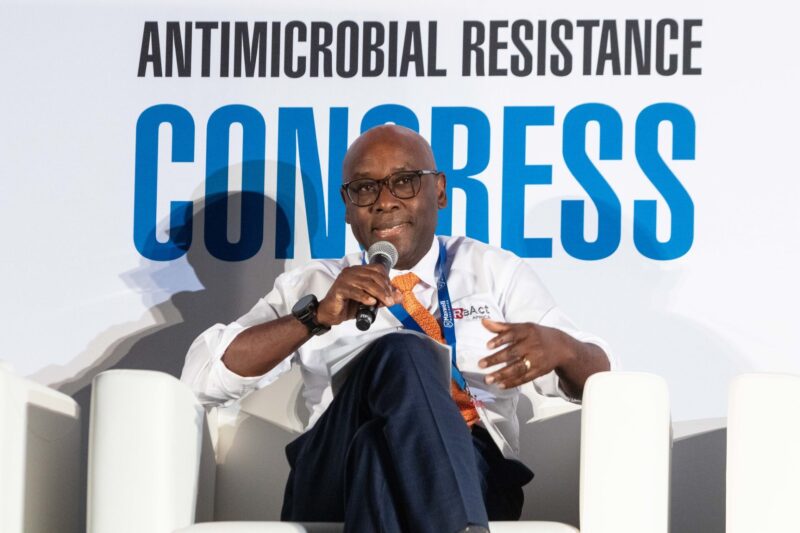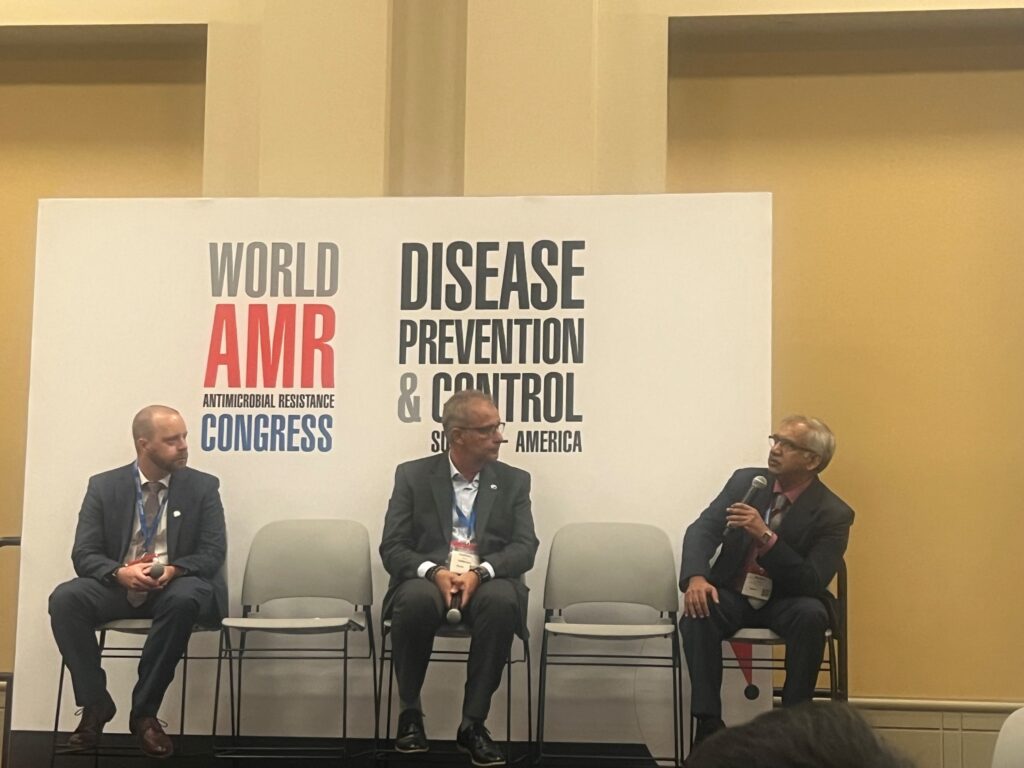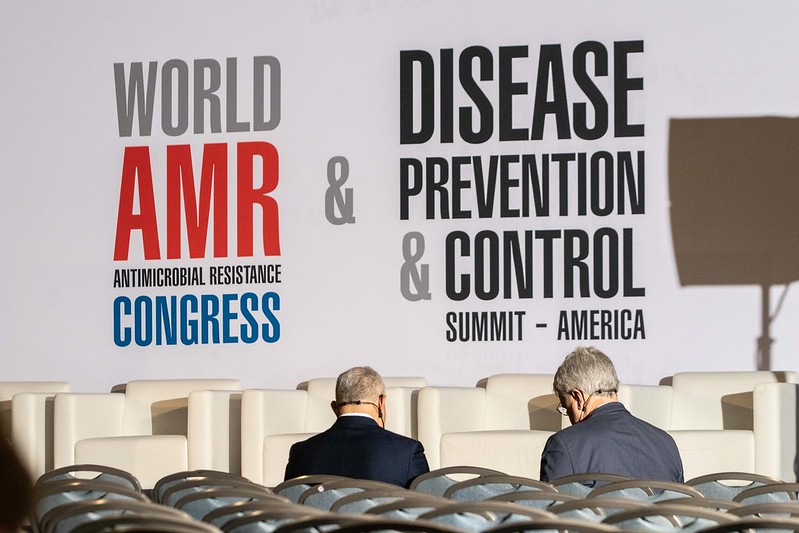On September 7-8th, the ICARS team participated in the World AMR Congress 2023 in Philadelphia, addressing the various challenges in mitigating antimicrobial resistance (AMR), with a focus on Low-and-Middle-Income Countries (LMICs). The congress provided a unique opportunity to engage with key stakeholders in North America, such as policymakers, researchers, civil society organisations, and the private sector. ICARS’ approach to developing AMR solutions was prominent at the different panels, roundtables, and discussions during the two-day congress.
One Health and LMICs on top of the agenda
On the first day of the congress, Dr Sujith J Chandy, ICARS’ Executive Director, stressed the importance of diagnostics in overall AMR stewardship and drew on ICARS’ experience in various projects. He highlighted the importance of incorporating affordable diagnostic tools to effectively mitigate AMR. Additionally, Dr Robert Skov, Scientific Director at ICARS, brought up the unique conditions and challenges in LMICs and how AMR solutions should be developed together with LMICs to make a sustainable impact. On the topic of LMICs, Dr Mirfin Mpundu, Director at ReAct Africa and ICARS’ Lead for partnerships and engagement in Africa, spoke on the importance of capacity building and investing in local manufacturing, specifically in Africa.

More on the congress’ agenda was the One Health approach in a global context. ICARS’ Head of Partnerships and Stakeholders Engagement, Dr Ghada Zoubiane, reflected on the need for a One Health lens when addressing AMR globally. Although a single sector initially receives more attention due to a shortage of resources, there is often a spillover to other sectors. Dr Zoubiane provided an example of ICARS’ project in Tanzania, AMR mitigation in the treatment of manure, where the environmental, animal and human sectors intersect. In a separate panel, Dr Robert Skov discussed the challenges and opportunities in measuring the impacts of AMR interventions, especially in LMICs. Moreover, the need for innovative educational approaches in AMR mitigation was explored in a roundtable discussion conducted by Dr. Chandy.

This year’s congress brought together key actors and facilitated a space to exchange experiences, ideas, and possible solutions to global AMR mitigation. ICARS had the opportunity to showcase its unique approach and engage with existing and potential partners to accelerate action on AMR and work more closely on national and international levels.
Read more about partnering with ICARS here.

